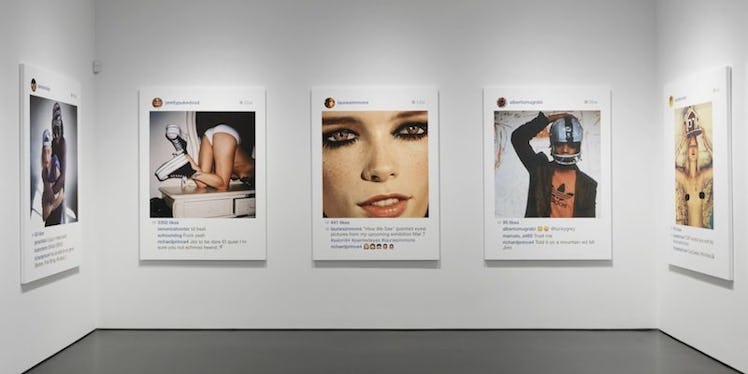
The Instagram Thief: Why Richard Prince Didn't Actually Commit A Crime
Richard Prince, the "artist" known for taking other people's photographs and "making them his own" since the 1970s, has found a new medium to steal from: Instagram.
Prince blew up screenshots of female celebrities, models and other account users onto canvas and titled them, "New Portraits."
The photographs are reportedly selling for close to $100,000 per canvas at the Gagosian Gallery on Madison Avenue and at Frieze New York.
As an attorney who practices intellectual property law, it is my opinion Prince's new collection accounts for theft and copyright infringement not excused by the law.
None of the photographs were taken with permission from the individuals who posted them to their accounts, as noted by model and cosmetics entrepreneur Doe Deere, who stated:
Yes, my portrait is currently displayed at the Frieze Gallery in NYC. Yes, it's just a screenshot (not a painting). No, I did not give my permission and, yes, the controversial artist Richard Prince put it up anyway. It's already sold ($90K I've been told) during the VIP preview. No, I'm not gonna go after him. And nope, I have no idea who ended up with it.
It also doesn't it appear Prince has altered the pieces enough to be considered "transformative" and, therefore, not commit copyright infringement.
News articles touting headlines like, "Your Instagram Photos Aren't Really Yours," do not entirely understand the law.
The moment you take a photograph, you have secured a common law copyright in it.
While there are concerns about the wide-reaching arm of the Internet and having people posting your drunken college photographs for all eternity, rest assured the photographs you post are yours.
Individuals who re-post those photographs without your permission are infringing.
Of course, you are not going to sue your friend for re-posting a photograph of the two of you, but what Prince has done is an entirely different scenario.
Prince is profiting to the tune of a million dollars from photographs that are not his.
While the law does allow for the unauthorized use of others' intellectual property in certain situations, there are barriers to having your "borrowing" being found as "fair use" or "transformative" to a degree that it is not plain theft.
Back in 2013, however, the United State Court of Appeals decided in Prince's favor.
A case was brought against Prince by photographer Patrick Cariou over Prince's series, "Canal Zone," which featured modified photographs of Panamanian landscapes and portraits of Rastafarians, originally taken by Cariou.
This was because the judge determined the content in all but five of the works was transformed enough to not be considered infringement.
Here, Prince has not transformed the photographs at all, in my opinion.
He took the entire photograph unaltered, merely added some new comments to the comments section and hung them to sell.
Additionally, since Prince used many famous individuals' photographs, there may be a claim for infringement of their right to publicity.
New York State's Right of Publicity Law provides protection of a person's name, portrait, picture and voice used without their consent for advertising or trade purposes.
This isn't to say we should not be careful with what we post on the Internet. You can lose a job, a friend or your dignity, over one photograph.
Someone like Prince, or Prince himself, can take your photograph and transform it to a degree that the court deems "fair use."
The ability to easily take others' intellectual property is an issue changing our society from music to art to business.
For now, Prince is laughing his way to the bank.
What the future holds for the legality of his actions is yet to be determined.